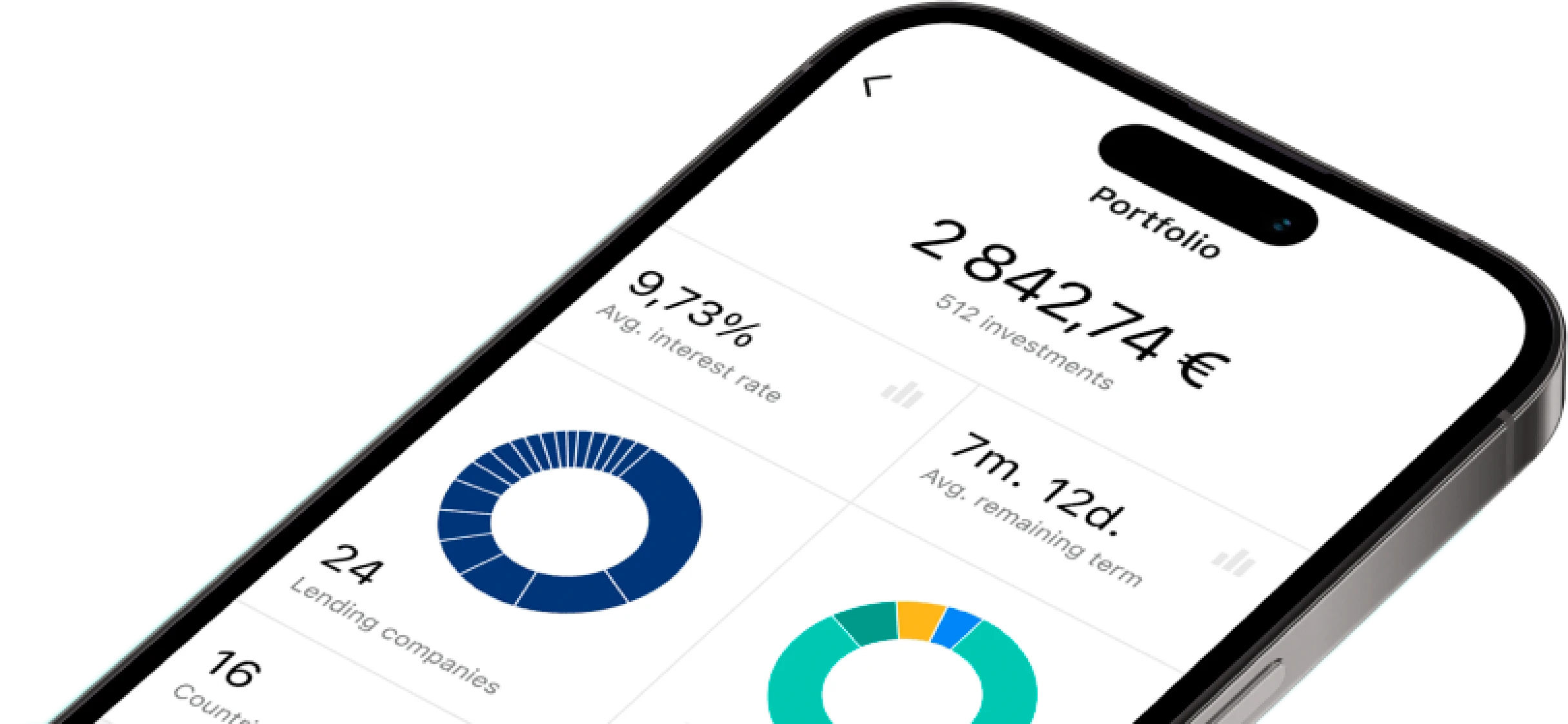Logic Keflex Opt is a doorway for finance enthusiasts who desire to access financial and investment education. Logic Keflex Opt provides ease and simplicity in connecting interested individuals with financial education firms. We assist them in acquiring skills for the world of finance.
In the traditional education process, students first have to apply. They also have to pay tuition and get accepted into the institute or school before they begin learning. However, the process is much easier and more comfortable regarding Logic Keflex Opt and linking interested persons with educator firms.
Logic Keflex Opt offers a smooth registration process. After that, we connect users to an educational firm. With the user's information, they get a firm suited to their needs. Logic Keflex Opt does this for free.

A significant aim of Logic Keflex Opt is to give all those interested access to available knowledge. We go all out to make this possible.
Logic Keflex Opt doesn’t conceal any payment plans. We don’t spring bills on our users out of the blue. With Logic Keflex Opt, users can simply focus on learning. No need to search for tutors. We take care of that.
Our goal is to make education and knowledge in finance readily accessible. This helps equip users with the ability to make informed decisions.
Registering on Logic Keflex Opt is hassle-free. It costs zero fees to sign up. Logic Keflex Opt stands on its goal of making finance and investment education accessible.
Our services at Logic Keflex Opt are entirely free. We are simply a bridge that connects interested persons to finance tutors

Registering on Logic Keflex Opt couldn't be easier. It's as simple as filling in details such as phone numbers and email addresses. Logic Keflex Opt enables its new users and provides them access to educator firms.
In this stage, the user is connected to an investment education firm. They can now begin learning about finance and investments. The firms offer personalized education.
The user is contacted by a representative of the education firm to which they are assigned. They have a conversation where more information about the user’s interests is obtained. This is to create a suitable program to kick-start their learning.
Finance and investment education firms are essential because they may help people gain financial literacy. This, in turn, helps them make informed decisions. Understanding this is why Logic Keflex Opt has made itself a link between interested persons and investment educator firms. This enables people to make educated decisions with their finances.
Users can learn about investments via education firms, which may open up a career for them in the discipline. Whether in financial analysis, portfolio management, or financial planning, having a finance background provides the necessary foundation to perform in these roles. Sign up on Logic Keflex Opt to learn more.

An investor gives a loan through a bond. This fixed-income investing tool includes information about the loan. It also involves the terms of the borrower's and lender's payments. Bonds are usually given to companies or governments. Companies take bonds when they need funds. These loans can be turned into assets, making the bond a promise from the company that took the loan. More on bonds is discussed below. Register on Logic Keflex Opt to learn more.
Bonds work like trading cards. Participating in accepting bonds is subjective to each person, depending on their financial standing.
There are risks with investing in bonds. They include changes in interest rates, credit risks, and so much more. These may even cause loss.
Maturity Date
Bonds have a pay date. This is a day when the investor expects to get paid back the money that was lent.
Credit Rating
This decides if the borrower will get their money back from the made investment. Credit rating determines the value of a bond. The higher the rate, the better the pay.
Coupon Rate
Now, this isn’t about shopping coupons. This refers to the interest rate the issuer promises to pay the lender. It is usually represented as a percentage of the original value investment.
Coupon rates work in percentages. The percentage dictates the interest to which the investor is entitled each year. An example is having a bond of a certain rate. This means one will receive interest payments annually based on this rate until the bond matures.
The lack of bond consensus explains that investors or experts don't always agree on the value or direction of bond markets.

Sometimes, investors tend to bring together their resources for the sake of doing social and environmental deeds. This is called impact investment. Impact investment is carried out in emerging and developed markets.
Impact investment aims to address social issues. The investor intentionally brings a solution and, in so doing, may gain from the endeavor. This “gain” may sometimes range from below to above the market rate.
Impact investment involves investing in companies, projects, or organizations addressing social challenges. By doing this, the investor may position their portfolio for positive impacts. Check out Logic Keflex Opt to connect to educator firms to learn more!
Just like in life, having a strategy, although not set in stone, may allow for favorable results. And guess what? In finance and investment, there’s no difference. Well-crafted strategies are very much needed. Investment strategy refers to the approach an investor takes with their resources or capital to pursue their financial goals. The investor does this to manage their investment portfolio and avoid risk.
Now, an investment strategy could be active or passive. When the strategy is active, the investor makes trades (buying or selling). They may also actively work on the portfolio to gain in the marketplace. On the other hand, a passive strategy involves investing in various assets of low-cost index funds and holding. An informed investment strategy might consider multiple factors. They include economic trends, market conditions, and other financial happenings. Learn more about investment strategy education from suitable educators via Logic Keflex Opt. Investment strategy has some components. They are:
Investors make the decision of where they place their investments. These decisions will have to align with their investment strategy and objectives. Hence, the investor must do research and seek opportunities.
Just as the term implies, it involves making investments across different types of assets. This is a way investors may minimize the effects of adverse economic events.
The investor must know how to distribute investment across different forms of assets. The goal is to balance risks as well as possible gains. All this is based on the investor's goals.
Every strategy still demands the ability to pivot now and again. It requires constant monitoring and regular balancing. This is to ensure the investment strategy aligns with the goals and risk management.
Forex stands for Foreign Exchange. It is the trading of currencies from different countries in the global marketplace. Currency is bought and sold in pairs, and investors may gain from the difference in exchange rates. The biggest market on earth is the foreign exchange market. A significant volume of transactions occurs in the Forex market daily.
Most financial markets are controlled by a governing body, not Forex. The Forex market runs twenty-four hours a day, five days a week. It also operates in multiple time zones. Forex is a common financial topic. Those who are interested can register on Logic Keflex Opt to connect with educational institutions that offer additional information.
One of the traits of a financially literate person is that they have a plan. They may also have a budget to guide them in their daily activities. Personal finance planning and budgeting are essential. They may help manage finances, expenses, savings, and income.
Finance planning and budgeting is done on a periodical basis. It could be weekly, monthly, or yearly. This is to track the use of resources and results from investments. Meeting financial goals all comes down to the financial plan set up. These goals could be long or short-term. They could be saving up to pay future bills or acquire an asset.
These things are also affected by factors like income, savings, investments, and insurance. Planning and budgeting also need one important attribute: discipline. To learn more about this through an education firm, sign up on Logic Keflex Opt.
Real estate investment is about acquiring a property one may gain from. Investors may buy, manage, rent, or sell property. Real estate investment occurs in various forms. There are three types: residential, commercial, and industrial real estate. Managing or owning a real estate company as an investing strategy may be advantageous. Landed property is also dealt with in real estate, in addition to built property. Register on Logic Keflex Opt to find out more.
When going into real estate, there is a lot to consider. The first thing to consider is the property’s location. This is so important. It includes amenities available, transport system, schools, job centers, and hospitals. These things significantly impact the value of the property.
Understanding the economic state is also essential. Factors like GDP development, population increase, job opportunities, and government policies should be analyzed. They may affect property value or rent rate.
A thorough inspection of a property should be done before any investment. This is to determine repair costs and whether the property or building is structurally sound.
It is vital to look for signs of neighborhood revitalization, infrastructure improvements, and environmental developments. These may increase the property's value and price.
Consider financial alternatives like mortgages, loans, savings, or partnership funds before entering real estate. These options can impact one’s investment strategy.
Investment goals and objectives should be defined before investing in real estate, whether to buy and sell or buy and rent. Decisions should be aligned with financial goals.
Logic Keflex Opt stands on its goal of connecting interested persons to investment education through its collaborations with education firms. Logic Keflex Opt is devoted to providing users with a suitable experience and service. This is all at no cost. Sign up on Logic Keflex Opt to begin.

| 🤖 Joining Cost | No fees for registration |
| 💰 Operational Fees | No costs whatsoever |
| 📋 Registration Simplicity | Registration is quick and uncomplicated |
| 📊 Focus of Education | Lessons on Cryptocurrencies, Forex Trading, and Investments |
| 🌎 Countries Covered | Excludes the USA, covers most other countries |


